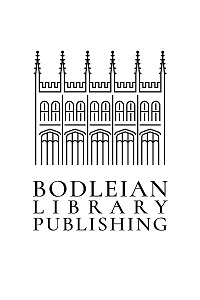Throughout the late-eighteenth and early nineteenth centuries, historical events were tremendously popular as adaptations for the stage. From the Revolutionary War to the French Revolution, stage dramas brought history vividly to life through powerful vocal performances and visual spectacle. The scale of the production was often ambitious, such as a Sadler’s Well staging of the Great Siege of Gibraltar, which featured a large water tank with floating vessels. Another production on the same topic added live cannons, which set fire to the vessels during the performance!
Drawing on copious new research, Staging History reexamines extraordinary theatrical works of the period to show the role they played in shaping popular interpretations of history. Editors Michael Burden, Wendy Heller, Jonathan Hicks, and Ellen Lockhart are joined by other experts in the field in analyzing theatrical documents, including playbills, set designs, and musical scores, as well as paintings, prints, and other illustrations, in order to explore what counted as historical truth for the writers, performers, and audiences of these plays.
Drawing on copious new research, Staging History reexamines extraordinary theatrical works of the period to show the role they played in shaping popular interpretations of history. Editors Michael Burden, Wendy Heller, Jonathan Hicks, and Ellen Lockhart are joined by other experts in the field in analyzing theatrical documents, including playbills, set designs, and musical scores, as well as paintings, prints, and other illustrations, in order to explore what counted as historical truth for the writers, performers, and audiences of these plays.
Reviews
Table of Contents
Foreword
Acknowledgements
Introduction
Michael Burden
Part One Among Fact and Fictions
1. Staging Shakespeare’s History Plays: The Past as Tone and Material, 1779-1830
Ellen Lockhart
2. Red-Hot Shot and Real Water! Staging the Siege of Gibraltar
David Stuart
3. Forget about Walter Scott: The Vision of the Bard in 1832
Jonathan Hicks
Part Two Politics, Nation, Identity
4. Hofer, The Tell of the Tyrol: Patriotism and the Chartists in Early Victorian Britain
David Kennerley
5. Completing a Nation-building Story: Bristow and Wainwright’s Rip Van Winkle
Victoria Aschheim
6. American Historical Melodrama: The Pioneer Patriot, or The Maid of the War Path
James Steichen
Part Three Exploration, Exoticism, Empire
7. A Killing in Paradise: The Grand Pantomime Ballet of the Death of Captain Cook
Michael Burden
8. ‘A Tale Founded Upon the Facts’: The Exile in Britain and American
Wendy Heller
9. Empire, Revolution and Patriotism in Columbus: Or, A World Discovered
Susan Valladares
Notes
Further Reading
Contributors
Picture Credits
Index
Acknowledgements
Introduction
Michael Burden
Part One Among Fact and Fictions
1. Staging Shakespeare’s History Plays: The Past as Tone and Material, 1779-1830
Ellen Lockhart
2. Red-Hot Shot and Real Water! Staging the Siege of Gibraltar
David Stuart
3. Forget about Walter Scott: The Vision of the Bard in 1832
Jonathan Hicks
Part Two Politics, Nation, Identity
4. Hofer, The Tell of the Tyrol: Patriotism and the Chartists in Early Victorian Britain
David Kennerley
5. Completing a Nation-building Story: Bristow and Wainwright’s Rip Van Winkle
Victoria Aschheim
6. American Historical Melodrama: The Pioneer Patriot, or The Maid of the War Path
James Steichen
Part Three Exploration, Exoticism, Empire
7. A Killing in Paradise: The Grand Pantomime Ballet of the Death of Captain Cook
Michael Burden
8. ‘A Tale Founded Upon the Facts’: The Exile in Britain and American
Wendy Heller
9. Empire, Revolution and Patriotism in Columbus: Or, A World Discovered
Susan Valladares
Notes
Further Reading
Contributors
Picture Credits
Index

